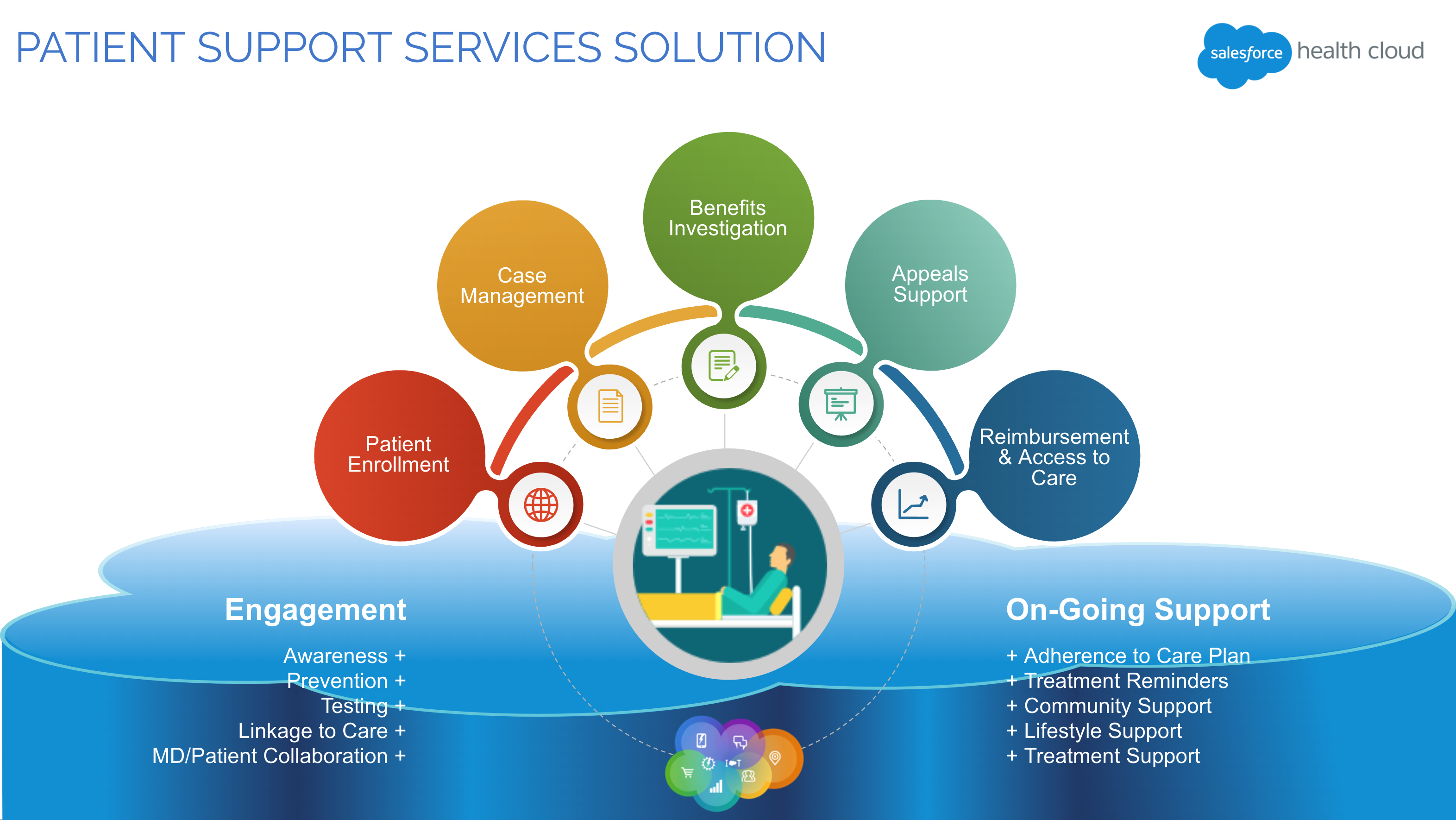
Patient services programs play a pivotal role in ensuring that individuals receive the support and care they need throughout their healthcare journey. These programs, offered by pharmaceutical companies, healthcare providers, and healthcare organizations, are designed to enhance patient experiences, improve outcomes, and foster a sense of well-being. In this blog, we’ll explore the essential capabilities of patient services programs and how they positively impact patients and the healthcare ecosystem.

- Personalized Support
One of the cornerstone capabilities of patient services programs is personalization. By tailoring support to the unique needs and circumstances of each patient, these programs can provide a more meaningful and effective experience. Personalization may involve customizing medication plans, addressing specific challenges, or offering resources in multiple languages to ensure accessibility for diverse patient populations.
- Education and Information
Patient services programs empower patients with knowledge about their conditions and treatments. They offer educational resources, including pamphlets, websites, and one-on-one consultations, to help patients understand their diagnoses, medications, and self-care strategies. Providing clear and accessible information helps patients make informed decisions about their health.
- Medication Management
Ensuring patients adhere to prescribed medication regimens is crucial for achieving positive outcomes. Patient services programs assist patients in managing their medications effectively. This includes reminders, refill coordination, and addressing any concerns or side effects, ultimately enhancing medication adherence and treatment success.
- Financial Assistance
Healthcare costs can be a significant barrier to accessing and continuing treatment. Patient services programs often offer financial assistance options, such as copay assistance, patient assistance programs, or access to low-cost or free medications. These capabilities help alleviate the financial burden on patients and increase treatment access.
- Care Coordination
Patient services programs facilitate seamless communication between patients, healthcare providers, and pharmacists. This ensures that everyone involved in a patient’s care is on the same page, reducing the risk of miscommunication, medication errors, and unnecessary delays in treatment.
- Emotional and Psychological Support
Managing a chronic condition or undergoing complex treatments can take a toll on a patient’s mental and emotional well-being. Patient services programs often provide access to mental health resources, support groups, and counseling services to address these crucial aspects of a patient’s journey.
- Remote Monitoring and Telehealth
In the digital age, patient services programs have embraced technology to provide remote monitoring and telehealth services. These capabilities allow healthcare providers to track patients’ progress, conduct virtual check-ins, and provide timely interventions when needed, especially in cases of chronic diseases.
- Patient Feedback and Improvement
Continuous improvement is essential for patient services programs. They should have mechanisms in place to collect patient feedback and use it to refine their offerings. Patient feedback helps identify areas for improvement, address pain points, and adapt to evolving patient needs.
- Data Analytics and Reporting
Patient services programs leverage data analytics to assess program effectiveness, track patient outcomes, and measure the impact of interventions. Analyzing data allows program managers to make data-driven decisions and allocate resources more efficiently.
- Compliance and Regulatory Expertise
Navigating the complex landscape of healthcare regulations and compliance requirements is challenging. Patient services programs often have teams well-versed in compliance with regulations like HIPAA, ensuring the privacy and security of patient information.
Conclusion
Patient services programs are a vital component of modern healthcare, designed to enhance patient experiences and outcomes. Their capabilities extend from personalized support and education to financial assistance, care coordination, and leveraging technology for remote monitoring. These programs play a pivotal role in improving the overall quality of care, fostering patient engagement, and ensuring that individuals receive the support they need to lead healthier lives. As the healthcare landscape continues to evolve, patient services programs will remain a cornerstone of patient-centered care.


